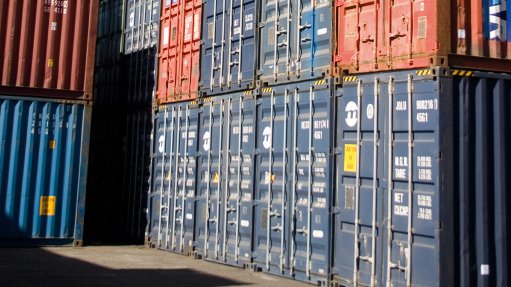
HEIGHT LIMITS Standard containers reaching an overall height of 4.3 m, would not be permitted to transport a high cube container
The Department of Transport has announced that vehicles transporting a standard container, reaching an overall height of 4.3 m, would not be permitted to transport a high cube container.
Owing to this, Transport Minister Dr Blade Nzimande has placed a moratorium, effective from January 1, 2019, to January 1, 2020, to ensure that the implemented regulation is adhered to.
In a media statement released last year by the department, the topic of the implementation of Regulation 224 (b) of the National Road Traffic Regulations 2000 – which entails the regulations pertaining to the height of cube containers – under the National Road Traffic Act of 1996, was addressed.
The release also mentions that the Minister met representatives in the freight logistics value chain to deal with the implementations of the regulations on high cube containers. He was joined by officials from the Department of Transport, the Port Regulator, State-owned freight transport company Transnet Port Terminals, South African National Road Agency Limited and representatives of the Western Cape government.
The regulations stipulate that a vehicle transporting a standard container, reaching an overall height of 4.3 m would not be permitted to transport a high cube container. A high cube container has an overall height of 2.9 m, compared with the 3.6 m for a standard container.
Further, the meeting also resolved to establish an inclusive technical task team constituting Department of Transport officials and the industry to facilitate and ensure that the unintended consequences of not adhering to regulation are minimised before the present moratorium is lifted.
Nzimande mentioned in a press release that industry must use a moratorium to ensure that it adheres to all the laws of the country, which are aimed at levelling the playing field for all economic variables without degrading public infrastructure, such as roads and associated services.
“In doing so, the industry must also be active participants in the implementation of the National Road Safety Strategy; the Comprehensive Maritime Transport Policy, in particular coastal shipping; and observe all labour relations laws, including sectoral determinations.”
However, export assistance company Exporters Club Western Cape chairperson Terry Gale feels that the ban will do more harm than good. “If implemented, it would be disastrous for the country and the economy as the majority of export containers from our neighbouring Southern African Development Community countries come through South Africa and use our ports, adding much needed revenue to the fiscus.”
He further mentions that switching to low-bed trailers could be quite costly, especially with the prohibitive costs involved, and that many small businesses will not be able to afford the conversion to low-bed containers.
“With the country continuously exporting a range of product internationally, the ban on the use of high cube containers could affect the country’s exports negatively,” concludes Gale.